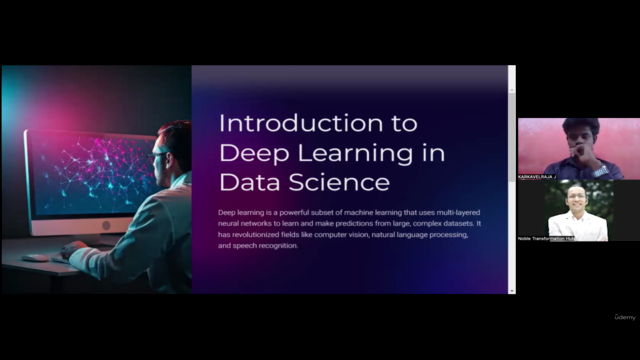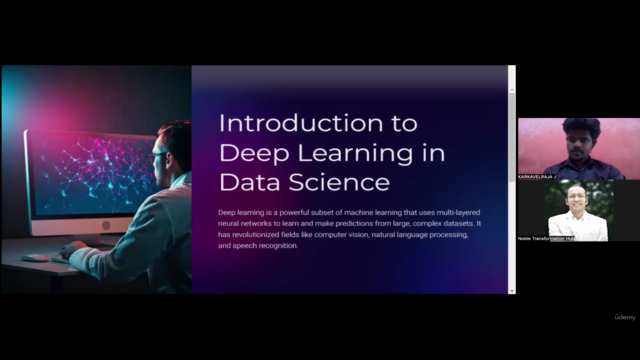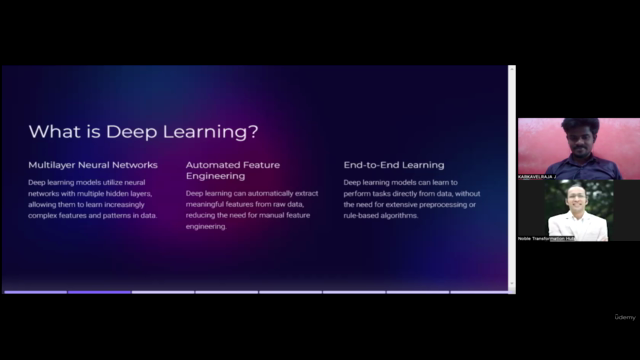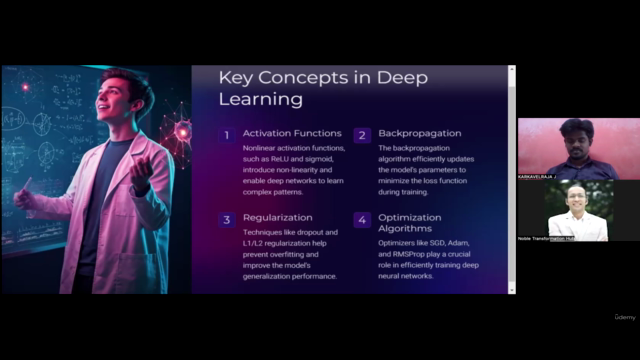Advanced Deep Learning Mastery End to End ™

Why take this course?
The outline you've provided describes a comprehensive curriculum on Deep Learning, covering both theoretical concepts and practical applications. Here's a summary of what the course seems to offer based on the topics listed:
-
USING PYTHON & TENSORFLOW/KERAS: The course likely begins with an introduction to Python programming and then moves onto TensorFlow/Keras for building and training deep learning models.
-
NEURAL NETWORKS: This section would cover the basics of neural networks, including how they work, types of layers (dense, convolutional, recurrent), and how to apply them to various problems.
-
DEEP LEARNING ALGORITHMS: Detailed study of different deep learning architectures such as Multilayer Perceptrons (MLP), Convolutional Neural Networks (CNN), Recurrent Neural Networks (RNN), Long Short-Term Memory networks (LSTM), and Gated Recurrent Units (GRU).
-
BACKPROPAGATION & OPTIMIZATION: This part would delve into how backpropagation works, optimization algorithms like SGD, Adam, etc., and strategies to minimize loss functions.
-
IMPLEMENTING LSTM & GRU: Hands-on practice with Long Short-Term Memory (LSTM) and Gated Recurrent Unit (GRU) networks, including understanding their gates and states for processing sequential data.
-
GANS (GENERATIVE ADVERSARIAL NETWORKS): Exploration of GANs architecture, how they consist of a generator and discriminator, and how they can generate new data with learned features.
-
Transfer LEARNING: Understanding how to leverage pre-trained models like VGG, ResNet, and Inception to improve model performance with less training data and time.
-
EVALUATION METRICS AND LOSS FUNCTIONS: Learning about various metrics for evaluating models, including accuracy, precision, recall, F1-Score, AUC-ROC for classification tasks, and Mean Squared Error (MSE) for regression tasks.
-
APPLICATIONS IN DIFFERENT DOMAINS: The course likely concludes with examples of how deep learning models can be applied in various domains such as image classification, natural language processing, sequence prediction, anomaly detection, and data generation.
Throughout the course, students would not only learn the theoretical aspects of each topic but also gain practical experience by implementing algorithms, training models, and evaluating their performance on real-world datasets. The curriculum is designed to take students from beginners to experts in the field of deep learning, enabling them to create innovative solutions and tackle complex problems using AI.
Course Gallery




Loading charts...